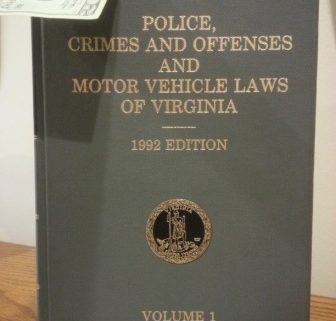Magistrates: Jack Daniels, Car-Sellin’, and Search Warrants
As writers of stories featuring cops and robbers, you’ve probably written a paragraph or two where a police investigator roused a sleeping judge to have him/her sign a search warrant. And that’s fine. It happens. However, in some parts of the country—Virginia, for one—it is a magistrate who normally signs off on search warrants and arrest warrants. Magistrates in the Commonwealth of Virginia also set bail/bond, and they have the authority to have someone incarcerated, or released from jail. Remember, writers, prison and jail are not the same. Big difference.
So, what is a magistrate? How do they get the job? What do they do?
First of all, a little history of the Virginia magistrate system. This office actually came about around the year 1195, in England, where certain knights were appointed by the King’s Justiciar to “keep the King’s peace.”
Along comes King Edward III, a 14-year-old ruler with whom parliament had little faith in knowing the youngster would rule not only the land, but would also have the power to send people to prison. So, they passed a law preventing a king from having the power to keep the peace. In 1361, the office of Justice of the Peace (JP) was established. Justices of the Peace had the power to arrest and to try offenders. And, they were assigned three or four assistants to help with those duties.
The Commonwealth of Virginia started its own JP system in the early 1620’s. It was crude, mostly to try petty offenses involving less than 100 lbs. of tobacco, etc. And, as a modern-thinking state, one that keeps up with the times, Virginia kept the office of Justice of the Peace until 1974.
Virginia JP’s were part-timers who carried their “office” inside a briefcase, responding to county jails and police departments whenever they were called in to issue a warrant, commit someone to jail, etc. They were also empowered to perform marriage ceremonies.
Many years ago, my father worked as a manager of a large chain clothing store. His bookkeeper/secretary/right-hand woman, was a pistol-toting, briefcase-carrying Virginia magistrate who would often leave her department store office duties behind to issue a search warrant or an arrest warrant. Later, when she retired, her magistrate reigns were handed over to a local AM radio disc jockey.
In the much larger jurisdiction, where I began my police career, there were three part-time magistrates assigned to the area where I worked patrol. They worked under the watchful eye of their boss, the chief magistrate. The chief was a full time employee. His underlings worked part time, conducting their magistrate duties as an “on call” service.
In our area, one of the three magistrates worked as a used car salesman, another owned a small mom and pop furniture store, and the third was a cattle farmer who had a massive farming operation out in the county. People such as these three were typical of the magistrates throughout the Commonwealth. These were the people who had the power to commit offenders to jail. They were the folks that we, as police officers, had to stand before to raise our right hand and swear that the facts and probable cause we presented were the truth as we knew it. They were the three who decided if we, the trained police officers, had probable cause to search a house for a murderer, or for narcotics.
Think about that for a moment. Imagine buying a used VW from a guy wearing a green-checked suit and white loafers, and then having that same geezer turn down your request for a search warrant because he doesn’t “think” you have enough information to search Joe Blow’s house, the guy who just traded his older Cadillac for a newer model. Guess who the salesman was that worked the deal? Yeah, imagine that.
How about this scenario. You, as a police investigator, need a search warrant pronto because the largest shipment of heroin to have ever hit your city is stored in a home and you have an informant inside right NOW. So you have dispatch contact the on-call magistrate. Dispatch calls you back and relays a message from the cattle farmer’s wife. “He’ll come down in a couple of hours. Right now, one of his cows is giving birth and he’s “up to his elbows” trying to help her along. Frustrating? Yes, for both the officer and the cow. But there was nothing either could do. It would happen when it happened.
I know, you want to know what sort of qualifications these goobers were required to meet to become a magistrate? The hiring process had to be rigid, right? After all, people’s lives were often at stake. Well, back in those days, magistrates were appointed by the circuit court judge, the guy who hunted, fished, and drank with his buddies/appointees. The set in stone requirements from 1974 until 2008 were as follows: magistrates must be U.S. citizens and a resident of Virginia. Nothing more. Not even as much as having to know how to spell the word magistrate.
After 2008, though, the requirements changed—citizen of the U.S., resident of Va., must possess a bachelors degree, no felony convictions, and a few other general housekeeping requirements. Also, post the 2008 change, magistrates are no longer appointed by deer-hunting, Jack Daniels drinking, poker buddy judges. Now they’re appointed by an Executive Secretary of the State Supreme Court. Whether or not he/she is a deer-hunting, Jack Daniels drinking, poker player is anybody’s guess. The majority of present-day magistrate positions are full time, but on-call service is in effect in some areas. The system, however, is far superior to days not so long ago.
Sure, I’ve made light of the position of magistrate in this brief blog post, but only to help emphasize the frustrations of police officers and citizens. Of course the position is extremely important, and the Va. magistrates have always taken their positions seriously, and they’re now all highly-trained professionals. I do not mean to offend anyone. Instead, this piece is, as always, information to assist writers with their fiction.
Still, that doesn’t stop the smell of warm cow manure or a fresh used car deal (the two are often synonymous) from holding up the show.





